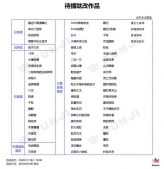python有一个内置模块zipfile可以干这个事情,测试一波,一个测试文件,设置解压密码为123。

|
1
2
3
4
5
6
|
import zipfile # 创建文件句柄file = zipfile.zipfile("测试.zip", 'r')# 提取压缩文件中的内容,注意密码必须是bytes格式,path表示提取到哪file.extractall(path='.', pwd='123'.encode('utf-8')) |
运行效果如下图所示,提取成功。

好了开始破解老文件的密码,为了提高速度我加了多线程最初的代码:
|
1
2
3
4
5
6
7
8
9
10
11
12
13
14
15
16
17
18
19
20
21
22
23
24
25
26
27
28
29
30
31
32
33
34
35
|
import zipfileimport itertoolsfrom concurrent.futures import threadpoolexecutor def extract(file, password): if not flag: return file.extractall(path='.', pwd=''.join(password).encode('utf-8')) def result(f): exception = f.exception() if not exception: # 如果获取不到异常说明破解成功 print('密码为:', f.pwd) global flag flag = false if __name__ == '__main__': # 创建一个标志用于判断密码是否破解成功 flag = true # 创建一个线程池 pool = threadpoolexecutor(100) nums = [str(i) for i in range(10)] chrs = [chr(i) for i in range(65, 91)] # 生成数字+字母的6位数密码 password_lst = itertools.permutations(nums + chrs, 6) # 创建文件句柄 zfile = zipfile.zipfile("加密文件.zip", 'r') for pwd in password_lst: if not flag: break f = pool.submit(extract, zfile, pwd) f.pwd = pwd f.pool = pool f.add_done_callback(result) |
这个代码有个问题,跑一会儿内存就爆了!原因:threadpoolexecutor默认使用的是无界队列,尝试密码的速度跟不上生产密码的速度,会把生产任务无限添加到队列中。导致内存被占满。内存直接飙到95:

然后程序奔溃:

看了一下源码发现threadpoolexecutor内部使用的是无界队列,所以导致内存直接飙满,重写threadpoolexecutor类中的_work_queue属性,将无界队列改成有界队列,这样就不会出现内存爆满的问题,看代码:
|
1
2
3
4
5
6
7
8
|
import queuefrom concurrent.futures import threadpoolexecutor class boundedthreadpoolexecutor(threadpoolexecutor): def __init__(self, max_workers=none, thread_name_prefix=''): super().__init__(max_workers, thread_name_prefix) self._work_queue = queue.queue(self._max_workers * 2) # 设置队列大小 |
最后破解成功,如下图所示。

到此这篇关于手把手教你怎么用python实现zip文件密码的破解的文章就介绍到这了,更多相关python破解zip密码内容请搜索服务器之家以前的文章或继续浏览下面的相关文章希望大家以后多多支持服务器之家!
原文链接:https://blog.csdn.net/aaahtml/article/details/117249121





